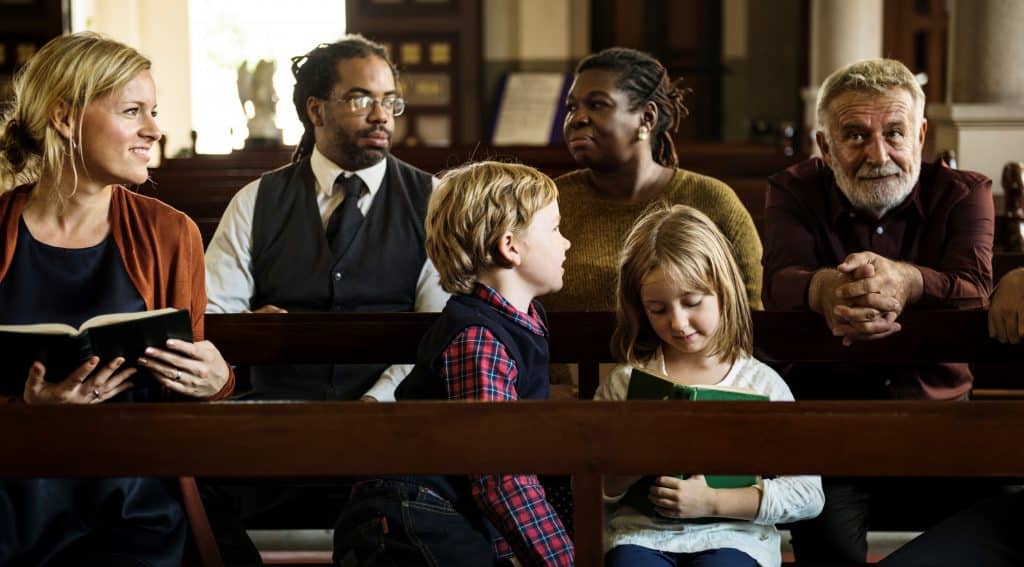
Luke Hopkins
20 June 2023
It has long been said that the Australian Anglican Church has let two different ecclesial cultures live in the same institution, and let both call themselves “Anglican”. It might be more apt to say in the present that there are at least three or four different cultures active within the national Church, not least here in the Diocese of Melbourne.
This is not necessarily a problem in itself. As we look around Australia and beyond, the Anglican Communion has become a home for many people with a variety of cultures and ecclesial expressions. However, we are presented with a question: “How do we discern what makes us all Anglican?” Once we pare back the inessentials of these ecclesial structures, what are the core things that all Anglicans could say are true of their identity? What beliefs and practices might be considered necessary to being an “Anglican Christian” and what beliefs and practices are secondary?
Read more: We must rediscover worship and proclaim God’s unfailing love
We are not the first Anglicans to ask such questions. What is essential to Christian identity has been a perennial question for “Anglicans”.
A figure who might help us answer these questions is late 19th century American Episcopalian priest William Reed Huntingdon. Huntingdon had a significant influence on Anglicans globally while also being relatively unknown to most.
In 1870, Huntingdon published a book called The Church Idea. This was the result of years of reflection in sermons and addresses he had delivered across the United States. After years of civil war, Huntingdon saw the vocation of American Anglicanism as one that could bring Christian denominations across the United States together into one fold. He envisaged a pan-Protestant national Church.
However, on what core principles would such a church be founded? What were the indispensable traits of being Christian once you whittled it all down?
Read more: Xeverie met 17 young Anglican ministers from around the world. Here’s what she learnt
The Church Idea articulated what Huntingdon believed these core features of Christian identity were and had been since the earliest times of the Church. This he called the “Anglican Principle”. It contained four indispensable parts:
- The Holy Scriptures as the Word of God
- The Primitive Creeds as the Rule of Faith (that is, the Apostles’, Nicene, and Athanasian creeds)
- The two Sacraments ordained by Christ himself (Baptism and the Eucharist)
- The Episcopate as the keystone of governmental unity
Huntingdon argued this “Anglican Principle” was separate from any cultural inessentials. He believed it could be held as the common elements for all Christians, everywhere and for all time, no matter who they were or what their opinions were on any number of other matters.
For Huntingdon, this ecumenical vision of a national American church justified the separation of Anglicanism from ideas of “Englishness”. As such, a national American church did not need ivy-covered village churches transplanted from the English countryside with surplices, choristers and prebendaries. Huntingdon’s vision of a core “Anglican Principle” meant that Christians could inhabit their nation and culture missionally and give proper cultural expression to their faith, without confusing these cultural traits with what was core to being a Christian.
Read more: Scripture at the very core of Lambeth Conference
Huntingdon’s vision of a Pan-Protestant church did not materialise. However, the American Episcopal Church’s house of bishops accepted the above four points, this “Quadrilateral”, as key to Christian reunion, at an 1886 General Convention meeting in Chicago. Then in 1888, at the third Lambeth Conference, bishops from around the nascent Anglican Communion affirmed a version of the Quadrilateral as key articles of Anglicanidentity. As such Huntingdon’s four points became known as the Chicago-Lambeth Quadrilateral and were upheld as the key features of what it meant to be Anglican.
So, would Anglicans across the Melbourne diocese be able to say the same? Can we look at these four points and recognise them as fundamental to our own Christian life and identity?
Today, each of the four points of the Quadrilateral is expressed in the Fundamental Declarations of the Constitution of the Anglican Church of Australia. These first three sections of the constitution are the unchangeable and non-negotiable parts of that document. They are core to what we believe Anglicanism is and how it should be expressed in Australia and for all time. However, I recognise that the Constitution is a relatively unknown document to most Australian Anglicans. Some are probably even surprised to hear that such a document exists.
Read more: The neglected power of dialogue
However, as we move forward into the future as Australian Anglicans, Huntingdon’s Quadrilateral could continue to be a key way that we recognise our common Anglican identity in this country. It is both a comprehensive and very simple view of what faithful Christian identity looks like. It allows for a great scope of differences on other matters because it knows what really counts. We can vary in worship styles, in opinions, in interpretations, in governance mechanisms – because we know what matters.
A bishop once described Anglican identity to me as big sheep paddock. Yes, he said, there are boundaries on that paddock but there is a huge amount of space to move around. The problem, he went on to say, was that most Anglicans spend a lot of time looking at the fence.
For unfortunate reasons, any discussion of Anglican identity continues to be a contested space – much as it has been for the last 500 years. However, Huntingdon’s vision of essential Christian identity can help us in the present and give us a way forward for the future.
Read more: Young members of Anglican representative body need longer terms: delegate
We might find less heat in our current conversations if we could come to a broader, more comprehensive appreciation of what it means to be Anglican – without letting go of our convictions or consciences. I know that I am not alone in this thought. I pray that we can allow for difference and persevere in the hope that God will not only bless our common ministry but forgive the mistakes we each and all make. We can do so in the knowledge that what makes me Christian are the same things that make you Christian.
The points of Huntingdon’s Quadrilateral direct us to what unites us in Christ – Creeds, Scriptures, Sacraments, Ministry. Huntingdon’s “Anglican Principle” is the first thing for Christians because it is based on our essential relationship with Jesus Christ. The Creeds articulate the essentials of our faith in Christ. The sacraments given by Christ convey the grace of Christ to us. The Scriptures speak the words of Christ to us today. The ministry of the Church (and its leadership) calls us into the fellowship of Christ and brings us together as His disciples.
Things fall apart when we do not accept that Jesus Christ is our common saviour. Things fall apart, when we stop recognising Christ in each other. When he become “my Jesus” and not yours, there is no common Christian identity for Anglicans. When my actions please Him, but I fundamentally believe that yours do not, there can be no fellowship between us. When in our heart-of-hearts we can no longer recognise each other as Christians, then our unity in Christ falls apart and perhaps more than that. Perhaps, we lose sight of Christ as well. Our fellowship falls apart because love is no more. When Christians stop loving each other as Christ loves us, then …
The Reverend Luke Hopkins is college chaplain at Trinity College Melbourne.
For more faith news, follow The Melbourne Anglican on Facebook, Twitter, or subscribe to our weekly emails.






